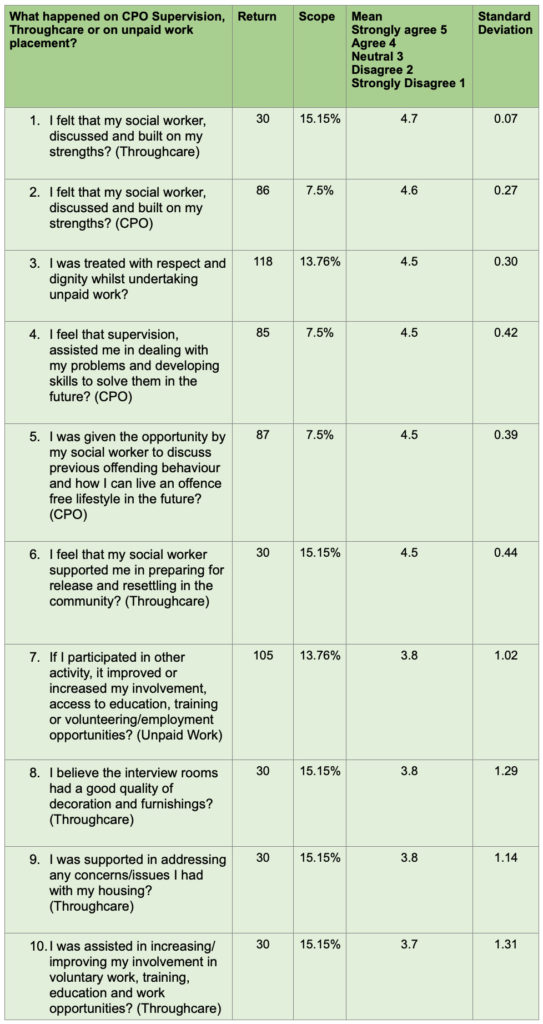Visited 1 times, 1 visit(s) today
Last modified: 6 October 2023
Recent Posts
- PERFORMANCE
- JOINT REVIEW BRINGS NEW FOCUS TO IMPROVING DIVERSION FROM PROSECUTION (ADULT)
- COMMUNITY PAYBACK – UPDATING UNPAID WORK
- MYTHBUSTING – MAKING THE ARGUMENT – ARE COMMUNITY SENTENCES A SOFT OR MORE EFFECTIVE OPTION THAN A SHORT TERM-SENTENCE
- PODCAST – THE CROFT IN CONVERSATION – WELCOMING, CONNECTING & SUPPORTING PEOPLE







